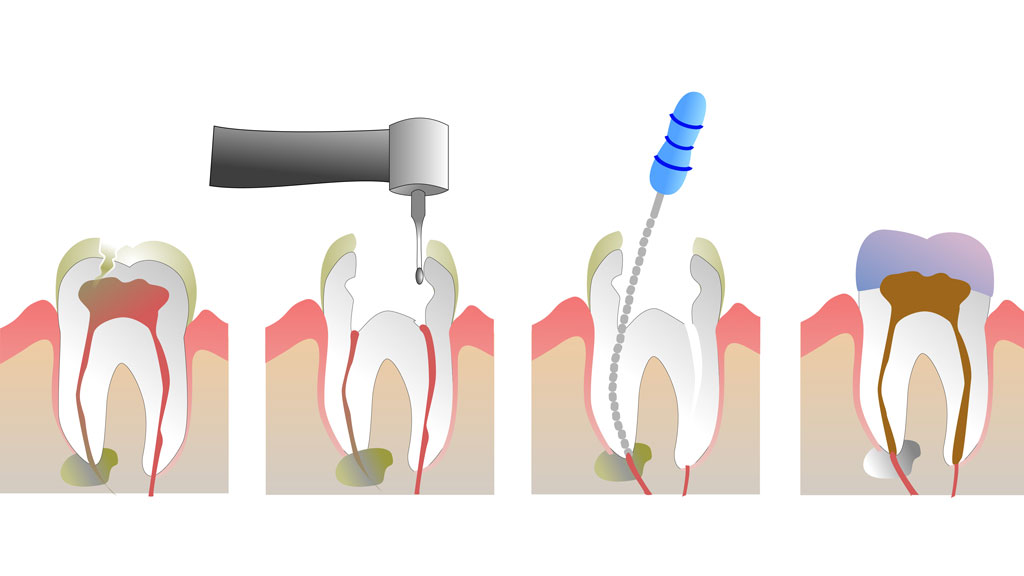Root Canals
Eleviate tooth pain once and for all when your tooth has excessive decay
What is a Root Canal?
The procedure involves several steps and in order to better understand them, a bit of background information may be helpful. The space inside the root of a tooth is what is known as the canal, or root canal. This region consists of the pulp chamber, the main canals, and several other anatomical branches. Human teeth generally have 1-4 root canals, depending on the anatomy of the tooth. Molars may have 2-4 canals, premolars may have 1-2 canals, cuspids may have 1-2 canals, and incisors generally have 1 canal. Extra canals may branch out from the main canal (called accessory canals). The exact number of canals and overall tooth anatomy can vary from person to person.
Why Should Expect from a Root Canal?
Root canals contain the pulp of the tooth (also known as the nerve), which originates in the pulp chamber. Pulp is a collection of blood vessels that help to build, nourish, and hydrate the surrounding tooth. Infection of the pulp can be caused by trauma, deep decay, cracks and chips, or repeated dental procedures. Symptoms of an infection include visible injury, swelling, sensitivity to temperature, and/or pain in the tooth and gums.
Root canal procedures differ among patients, however typical procedures generally take anywhere from 1-2 visits. Before the procedure, however, you will be advised as to the exact number of appointments to be expected. If an infection or abscess is the reason behind your root canal procedure, it may be necessary to begin an antibiotic treatment before continuing on with the procedure.
How do I know if I need a root canal?
There are typically two reasons why one may need a root canal, the first being infection of your tooth and the second being irreversible pulp damage. If your tooth is infected, chances are you’ve had decay in that tooth that has eroded the enamel and dentin of the tooth, until it reaches the pulp chamber. Once the decay gets there, bacteria infects the pulp and inflames it, causing a reduction in the blood supply to the tooth. If the infection is left untreated, it can affect the bone around your tooth, causing an abscess to form on the outside of your gum and severe pain. At this point, a root canal is unavoidable and necessary to save the tooth.
The second reason for a root canal is damage to the pulp that cannot be fixed. Often this happens with trauma or a fracturing of the tooth. Sometimes, when placing a filling or preparing a tooth for a crown, the pulp can be damaged and the tooth might then need a root canal. In this situation, our dentists will try to wait and see if the tooth can heal itself before recommending a root canal. Sometimes this is possible, other times it is not.
You can be assured that no matter the situation, our dentists are well trained in diagnosing and treating your case. He will do everything possible to get you through the procedure with as little pain as possible, both during and after.

